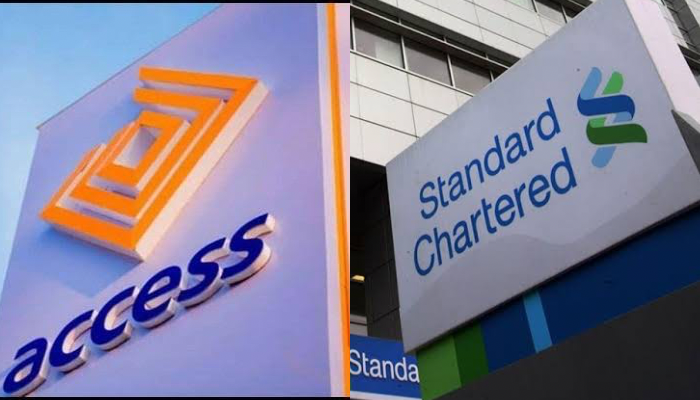Access Bank Will Purchase Sub-Saharan African Subsidiaries from Standard Chartered. Angola, Cameroon, the Gambia, and Sierra Leone’s Sub-Saharan subsidiaries will be sold.
Reuters reports that Standard Chartered Bank and Nigeria’s Access Bank have agreed to sell one other’s operations in sub-Saharan Africa.
Driving The News Standard
Chartered will transfer to Access Bank its ownership of its subsidiaries in Angola, Cameroon, the Gambia, and Sierra Leone.
Additionally, it will sell its Tanzanian consumer, private, and corporate banking operations.
Why It’s Important
In an effort to increase earnings by concentrating on the region’s markets that are expanding more quickly, Standard Chartered said in April of last year that it will withdraw from seven nations in Africa and the Middle East (AME).
The deal, which is anticipated to close within the coming year, was not given a price. The transactions are pending regulatory approval in Nigeria as well as each of the other countries.
They Are Saying
“Access Bank will provide a full range of banking services and continuity for key stakeholders, including employees and clients of Standard Chartered’s businesses across the five aforementioned countries,” Standard Chartered stated in a statement.
Sunil Kaushal, Standard Chartered’s regional CEO for the AME region, said in the release, “This strategic decision allows us to redirect resources within the AME region to other areas with significant growth potential.”
Access Bank Will Purchase Sub-Saharan African Subsidiaries from Standard Chartered
According to the press release, the agreement will aid Access in “creating a strong global franchise focused on acting as a gateway for payments, investments, and trade both within Africa and between Africa and the rest of the world.”
Access Group Managing Director Roosevelt Ogbonna said in the statement that “with our recent European expansion and our deepened presence in key trading corridors across Africa, we will bridge the gap between cross-border and domestic transfers across all business segments.”




